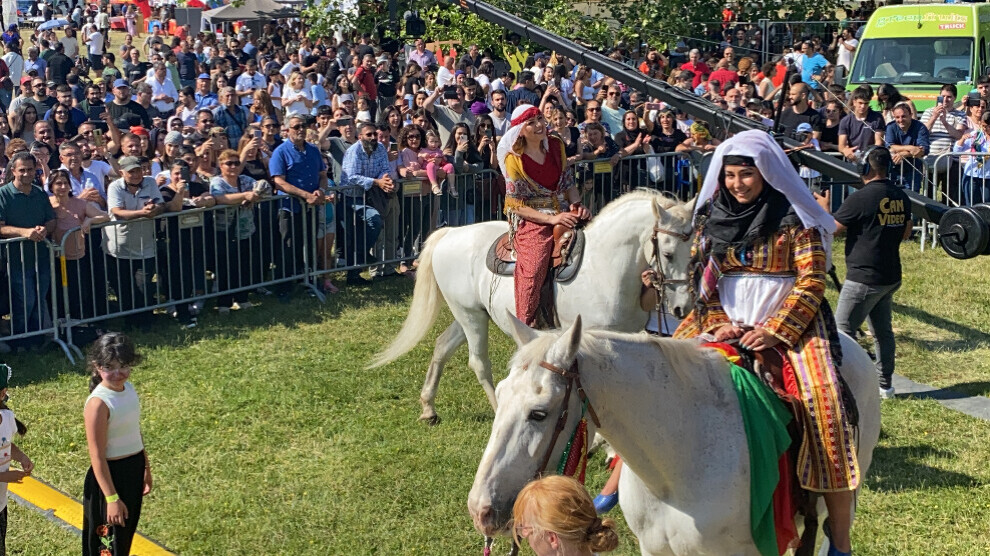Dersim means resistance
After a two-year break due to the coronavirus pandemic, the Dersim festival took place in Frankfurt and was attended by thousands of people. Guest speaker, HDP MP Kemal Bülbül said that Dersim is synonymous with resistance.
After a two-year break due to the coronavirus pandemic, the Dersim festival took place in Frankfurt and was attended by thousands of people. Guest speaker, HDP MP Kemal Bülbül said that Dersim is synonymous with resistance.

After a two-year break due to the coronavirus pandemic, the traditional Dersim Festival took place in Frankfurt am Main for the twelfth time. The two-day festival was organised by the Democratic Alevi Federation of Europe (FEDA) and the Dersim Federation of Europe (ADEF).
Panel discussions and the Alevi ritual Muhabbet Cemi took place on the first day, while the second day started with the documentary "1994" by Devrim Tekinoğlu. The documentary is about the village burnings in Dersim.
The stage program started with Pir Ali Bali and Narin Ana. Performances by Stêra Müzik Topluluğu, Grup Munzur, Beşer Şahin, Doğan Çelik, Lale Koçgün, Mikail Aslan, Levent Özdemir, Serhad Med, Varvara and a Davul Zurna group followed.
Hülya Yer, the co-chair of the Dersim Construction Committee (DIK), spoke about the Dersim massacre in 1937/38. According to Hülya Yer, the same way of thinking that was responsible for the genocide of the Alevi population at that time can be seen today in the attacks on the guerrilla areas in South Kurdistan.
She also said that Alişer and Zarife's resistance at the time was continued by people like Sakine Cansiz, Aysel Doğan and thousands of "nameless heroes".
HDP MP Kemal Bülbül said that Dersim is synonymous with resistance. Armenian journalist Hayko Bağdat added: “Everyone in this place has suffered from the Turkish state. We, on the other hand, value ourselves and our differences. I am warmly welcomed by all Alevi and Kurdish families in Europe.”
There was great interest at the festival in the book stands set up on the site. Dozens of authors such as Hatip Dicle, Sefkan Botan, Kemal Aktaş, Erdoğan Yalgın, Aziz Tunç and İmam Canpolat were present and wrote dedications in their books. Thousands of people attended the festival.